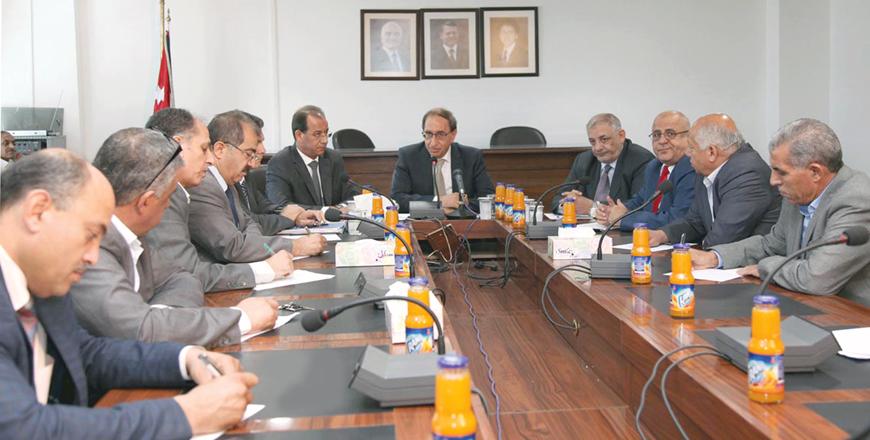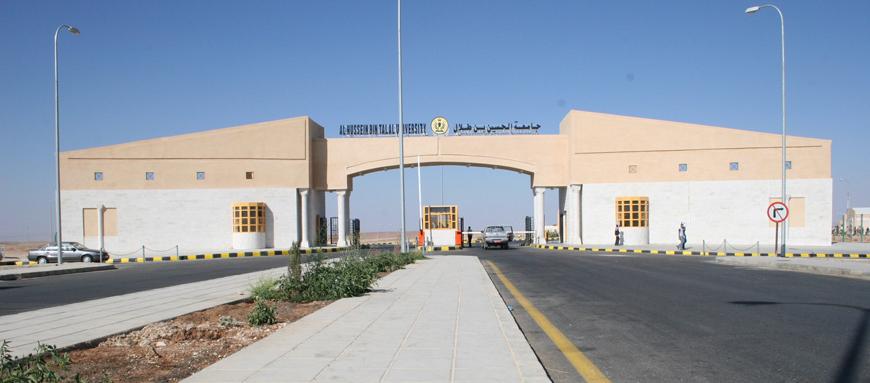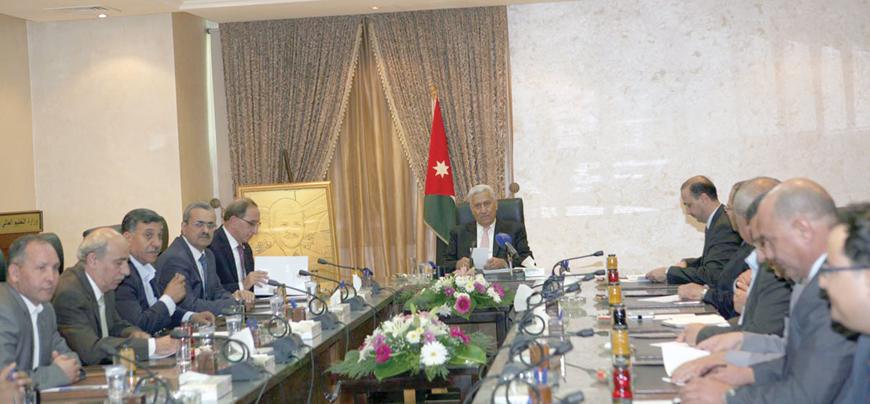You are here
Around 10,000 students could be admitted at engineering faculties this year — minister
By JT - Aug 12,2015 - Last updated at Aug 12,2015

Higher Education Minister Labib Khadra speaks at a symposium organised by the Jordan News Agency, Petra, on Monday (Petra photo)
AMMAN — Tawjihi graduates who scored 80 per cent and higher this year are likely to be admitted at the engineering faculties of public universities, Higher Education Minister Labib Khadra said Monday.
At a symposium organised by the Jordan News Agency, Petra, he added that around 10,000 students have scored these marks in the scientific and industrial streams of this year’s General Secondary Education Certificate Examination (Tawjihi) summer session.
Khadra said higher education in Jordan is still “excellent” despite the challenges it is facing.
Some universities can compete at the international level, and they need a little more support to be among the top 500 universities in the world, the minister said, adding that medical and engineering colleges have excelled despite limited resources and brain drain.
He added that the sector is facing several problems, with many strategies and solutions being prepared to address these challenges, according to Petra.
The Jordan 2025 document has summarised these problems, starting from financing, with government support covering 7 per cent of universities’ operational costs, tuition fees covering around 50 per cent, and the rest covered by the university, Khadra said.
He added that the parallel programme, which targets students with scores that do not qualify them to study specific subjects, provides public universities with around JD500 million annually
Tuition fees for this programme are higher than regular programmes and vary from one university to another.
Khadra said the parallel programme partially contributed to addressing universities’ financial problems, but it has also contributed to creating a problem in the quality of education.
The second problem in quality is due to lack of accountability, according to the minister, who added that during the past 10 years universities were not held accountable for students’ results.
The third problem has to do with the increasing numbers of university students, especially since 90 per cent of Tawjihi students enrol at universities and less than 5 per cent join technical education, he added.
The minister said statistics show that more than 50 per cent of female graduates are unemployed, while some 25 per cent of male graduates do not work, adding that 300,000 applicants to the Civil Service Bureau are waiting to be employed in government jobs.
“This does not necessarily mean that they [all 300,000] are unemployed... but the number has risen sharply compared with the 150,000 applicants in 2005,” Khadra warned, noting that the number of university students is expected to reach around 450,000 by 2025.
Around 28,573 students, who have achieved an average score of 65 per cent and above in this year’s Tawjihi, are entitled to apply to public universities while the overall number of students eligible to join public and private universities is around 30,788, the Unified Admissions Committee said earlier this month.
Also this month, the Higher Education Council froze a decision it adopted in July to raise minimum admission rates for the Kingdom’s universities by five points.
Instead, required averages in some majors were lowered. The minimum score for the faculties of Sharia, law and agriculture was reduced to 65 from 70.
Moreover, the council lowered the admission score for students who want to specialise in paramedic and rehabilitation science to 70 from 75 as the labour market can easily absorb its graduates.
Replying to a question on admission exceptions at public universities, Khadra said that some exceptions are a national duty since they serve remote areas that do not receive enough development gains.
He noted that some exception seats increase, such as seats for sons of martyrs, who have 1,500 seats at public universities.
Also speaking at the symposium, Scientific Research Support Fund Director General Abdullah Zu’bi said there are around 10,781 faculty members at universities, of whom 7,320 are at public universities, but their scientific production has been “modest” during the past five years, with only 11,798 research papers listed in the Scopus bibliographic database, which counts in global rankings of universities.
Related Articles
AMMAN — Higher Education Minister Labib Khadra on Thursday said 24,723 students have been accepted at public universities through the Unifie
AMMAN — The Higher Education Council (HEC) on Sunday decided to freeze a decision it adopted last month to raise the minimum admission rates
AMMAN — Prime Minister Abdullah Ensour on Thursday stressed the importance of safeguarding the accomplishments of the higher education secto

















